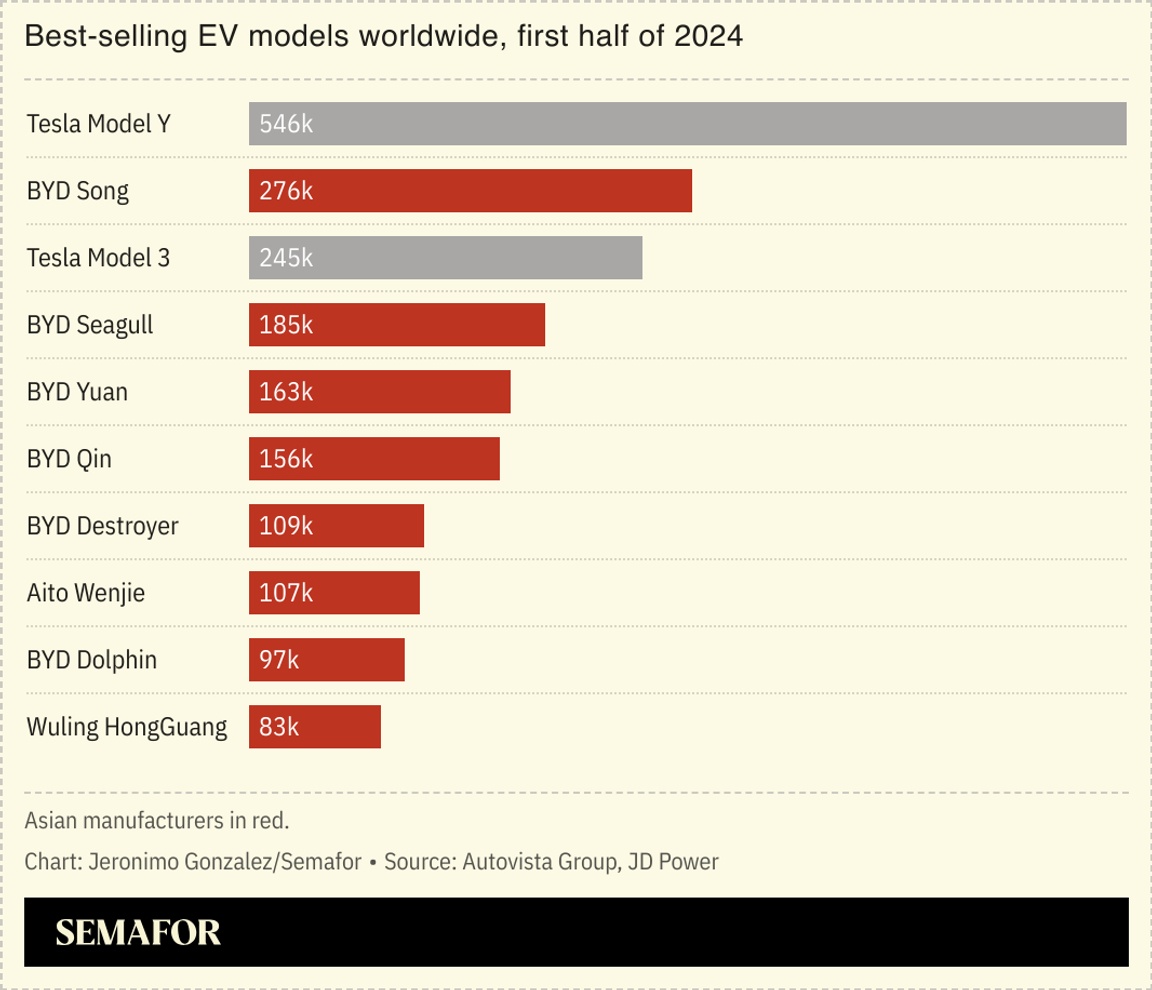 Berkshire Hathaway, the investment group run by Warren Buffett, has sold most of its shares in the Chinese electric vehicle company BYD. Berkshire was a prescient investor in BYD, now the world’s largest EV manufacturer, back in 2008. It’s “strange,” noted the investments analyst Michael Dunne, because BYD is the fastest-growing automaker ever, and other car firms see it as “an existential threat.” But, said Dunne, there are concerns over its market dealings, uneven quality, and labor standards: “Perhaps Warren is just taking profits,” he mused, or maybe Buffett “senses something that everyone else is missing.” Coincidentally or not, analysts suggested that China’s car exports may have peaked, hit by trade barriers and bans in overseas markets. |